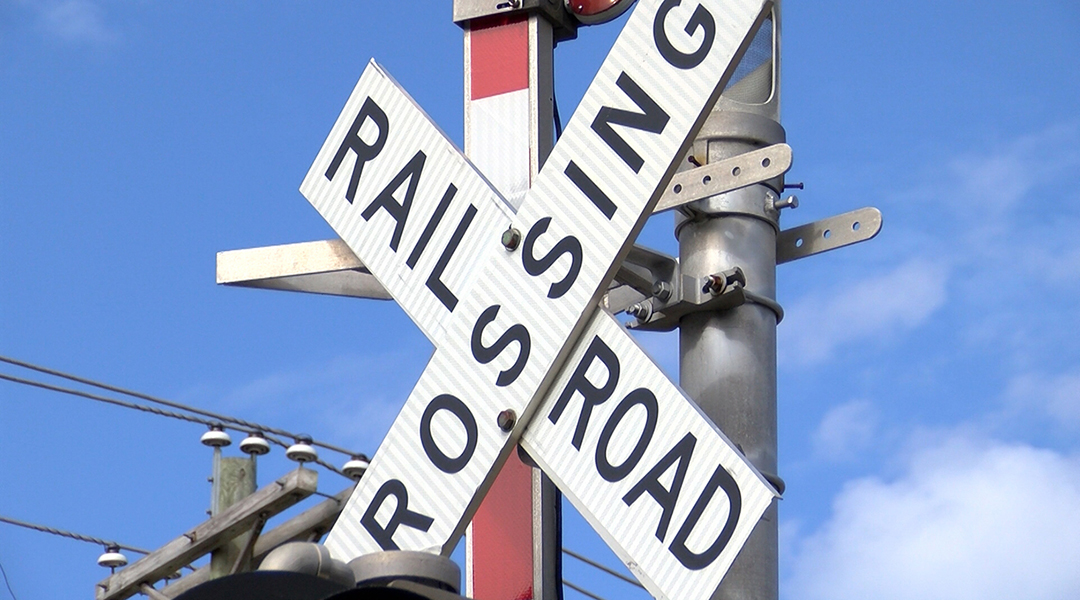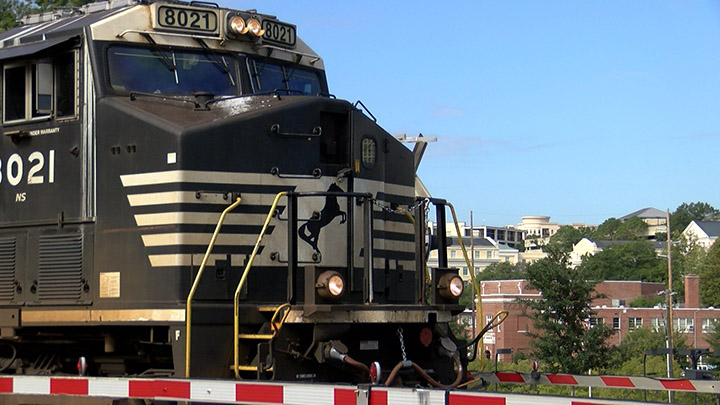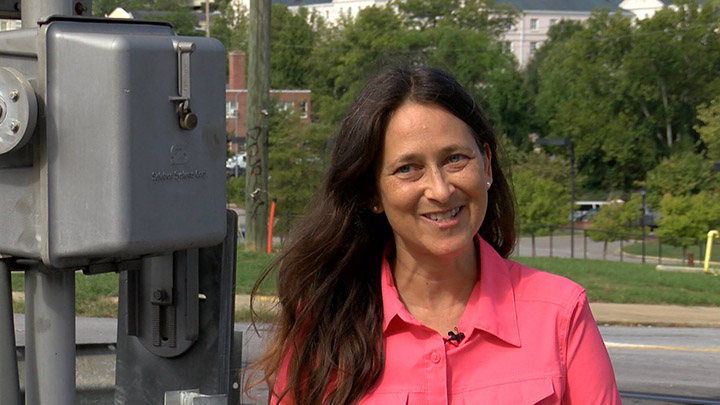A city committee estimates about 60 percent of Columbia’s train noise comes from crossings in the Gadsden Street to Beltline Boulevard section of tracks. It would cost the city about $2 million to establish a quiet zone in that area.
Blaring horns and trains clattering along downtown tracks are familiar sounds in Columbia. But some residents are fed up by the noise.
When Brenda Kramar moved back to Columbia after several years, she couldn’t believe how loud and frequent the trains had become in her time away.
“After not sleeping for weeks in a row I found myself running red lights accidentally because I was a zombie,” Kramar said.
But instead of just dealing with the racket, silencing conversations when trains passed by or losing hours of sleep, Kramar took a stand and started looking for a solution. She found it in quiet zones.
The Federal Railroad Administration requires trains to blow their horns when passing through crossings. But it also allows local governments to create quiet zones where the trains can only sound their horns in case of emergency. But first, those cities have to pay for safety improvements to the crossings like medians and extra gates.
For Kramar, it seemed like the perfect solution.
“More than 800 quiet zones currently exist in this country,” she said. “And they’ve been created by more than 700 different public authorities so this is not an uncommon thing to do and its not a terribly difficult thing to do, the city just has to decide to make it a priority.”
Now Kramar is taking the solution to the city. She chairs the Quiet Zone Advisory Committee, which is working with the city to find a way to bring 11 different quiet zones to Columbia.
But they’re facing one big problem: money. Aside from the $200,000 it would cost for engineers to assess the current crossings, the city would also need $2 million to make safety improvements in the first proposed zone, running from Gadsden Street to Beltline Boulevard.
To make the required improvements to all 11 zones, it could cost the city a total of $14 million.
City Councilman Howard Duvall is optimistic, but knows firsthand how difficult it can be to find millions of extra money in the city’s budget.
“I think we’ll find the money, but it’s not easy to find 2 million dollars in our budget,” Duvall said.
Kramar also says she sees money as the primary roadblock for the proposal, adding that from here on it’s up to the city.
“The decision is in the hands of the city now. Funding is always an issue and that’s one of the things city staff will have to be looking at,” Kramar said. “Where does the money come from and how do we pay for it.”
If the city does find funding for the zones, it would be another year and a half to two years before they would be up and running.
Despite the obstacles, Kramar says she’s still hopeful for silent nights in her future.
The Federal Railroad Administration requires trains to sound their horns four times at a minimum of 96 decibels when going through a crossing. But if a local government establishes a quiet zone, trains can only sound their horns in case of emergency.
Brenda Kramar lives near a crossing and says that the constant noise has driven her family to dangerous levels of exhaustion. She’s pushing for quiet zones to help silence the trains and get Columbia residents some rest.







